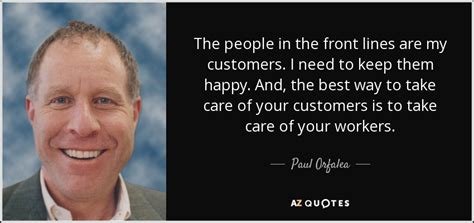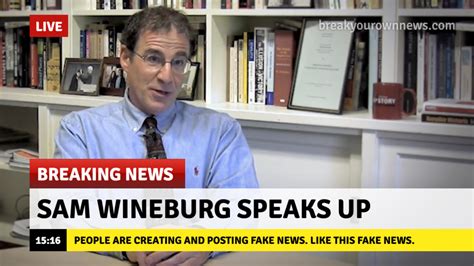A Quote by John Barth
One of the things I miss about teaching is that students would tell me what I ought to read. One of my students, back in the 1960s, put me onto Borges, and I remember another mentioning Flann O'Brien's At Swim Two-Birds in the same way.
Related Quotes
When I was teaching at an institution that bent over backward for foreign students, I was asked in class one day: "What is your policy toward foreign students?" My reply was: "To me, all students are the same. I treat them all the same and hold them all to the same standards." The next semester there was an organized boycott of my classes by foreign students. When people get used to preferential treatment, equal treatment seems like discrimination.
Things change when you learn to loosen your grip. I think one way and the future is desperate. I think another way everything is in sight. Trees bend so branches don't have to break. We mend the wounds of our last mistake... I live one way holding onto the fence post. I live another way sliding off into space. Each life is loosely assembled... Birds swim, fish do fly. Proud man begins to cry. Birds swim, fish do fly. Things change, so why can't I?
Teaching, like any truly human activity, emerges from one's inwardness, for better or worse. As I teach I project the condition of my soul onto my students, my subject, and our way of being together. The entanglements I experience in the classroom are often no more or less than the convolutions of my inner life. Viewed from this angle, teaching holds a mirror to the soul. If I am willing to look in that mirror and not run from what I see, I have a chance to gain self-knowledge-and knowing myself is as crucial to good teaching as knowing my students and my subject.
Public education for some time has been heavily focused on what curricula we believe will be helpful to students. Life-Enriching Education is based on the premise that the relationship between teachers and students, the relationships of students with one another, and the relationships of students to what they are learning are equally important in preparing students for the future.
I hadn't had any course work in ceramics. I had no courses in art education but I wasn't going to let this chance to have a job pass me by. I went out and learned and I stayed one step ahead of the students by reading and I got to be pretty proficient at throwing on the wheel and making my own glazes, ordering the chemicals and having the students go out and dig and process their clay, and doing things that they weren't teaching at Howard University. So Talladega College opened up my whole sensibility about experimental teaching.
The angels started visiting and helping me as far back as I can remember. I was lonely a lot in my childhood and the angels would come and comfort me, and help me to feel better, and at the same time they would also take me to places. I literally mean they would take me on a journey and tell me things.
I am relieved that, in my own teaching, I don't have to moderate between high stake teaching and education for the virtues. If I did, I would give students the tools to take the tests but not spend an inordinate amount of time on test prep nor on 'teaching to the test.' If the students, or their parents, want drill in testing, they'd have to go elsewhere. As a professional, my most important obligation is to teach the topic, skills, and methods in ways that I feel are intellectually legitimate.




































